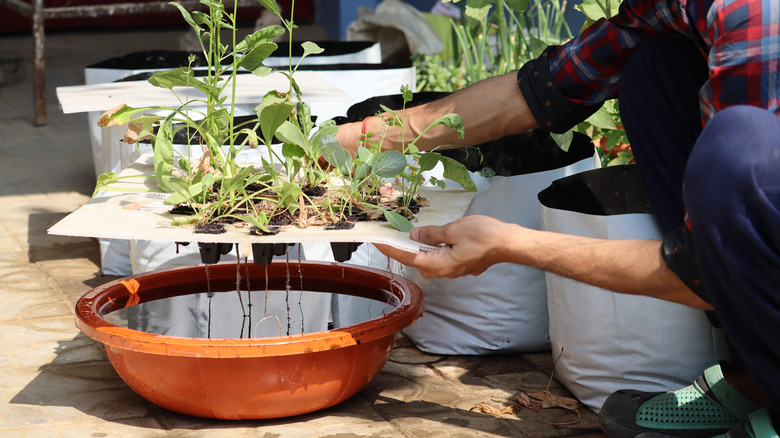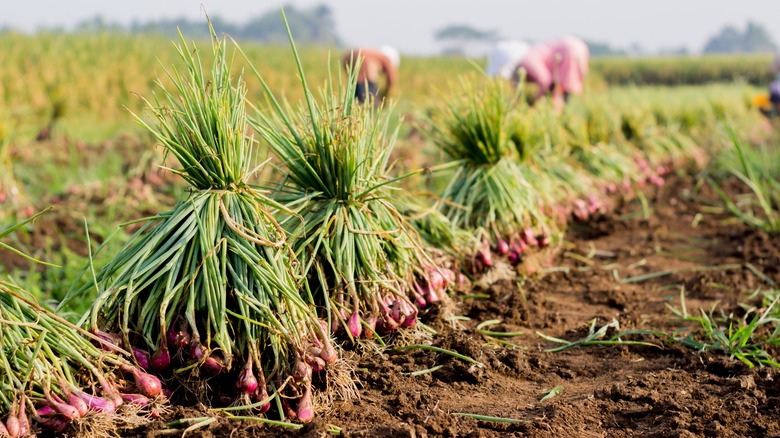Why Food Sovereignty Is Gaining Steam In Indigenous Populations
The concept of food sovereignty — people having the right to control where and how they get food — is growing throughout America, particularly within tribal communities. While there isn't a universal definition for the movement, according to the U.S. Department of the Interior, food sovereignty aims to support a community's ability to choose the food they eat and from where it is sourced. As explained by La Via Campesina, food sovereignty empowers communities to take charge of what is right for them by creating fairer and just food systems.
In 2001, food sovereignty campaigns first called for sustainable, family-based food production, culminating in a 2007 declaration outlining steps for the promotion of equal and democratic food industries (via NyélénI). The document details the need to shift power away from policies and back into the hands of individual communities through grassroots initiatives, generational knowledge, and natural products (via Food Secure Canada).
Yet it's not just financial impact or autonomy of food choice that is important, cites research published in the International Journal of Environmental Research and Public Health; native foods have the potential to improve the health and wellness of at-risk populations. In a study published in the Food Security journal, researchers note that while Native Americans make up less than 2% of the American population, the group suffers some of the highest numbers of health challenges and food insecurity in the country.
A movement rooted in tradition
The foundational beliefs of the food sovereignty movement are not new, recognizes the Indigenous Food Systems Network; the idea that food is sacred, practice is necessary to preserve tradition, natural resources should be conserved, and independent food decisions should be protected are all principles that have evolved from longstanding cultural practices and indigenous ways of living.
Quapaw Nation defines food sovereignty as "the process of decolonizing the local food system to recreate a sustainable system that maximizes self-reliance through farm-to-table initiatives," and has made a meat processing plant, greenhouses, beehives, crops, a coffee roasting center, and a farmers' market to showcase and sell local products and traditional foods while promoting tribal ownership of the food economy.
Nebraska Public Media recognizes that Quapaw Nation and organizations like the First Nations Development Institute have helped native communities find the resources they need to reclaim power over the food cycle. As more individuals take on responsibility and action, the movement is bound to grow. "It really helps me connect to my culture better," Jojo Blackwood told Harvest Public Media. "It helps me connect to my people better. I like to think that my ancestors are proud of me for doing this."

